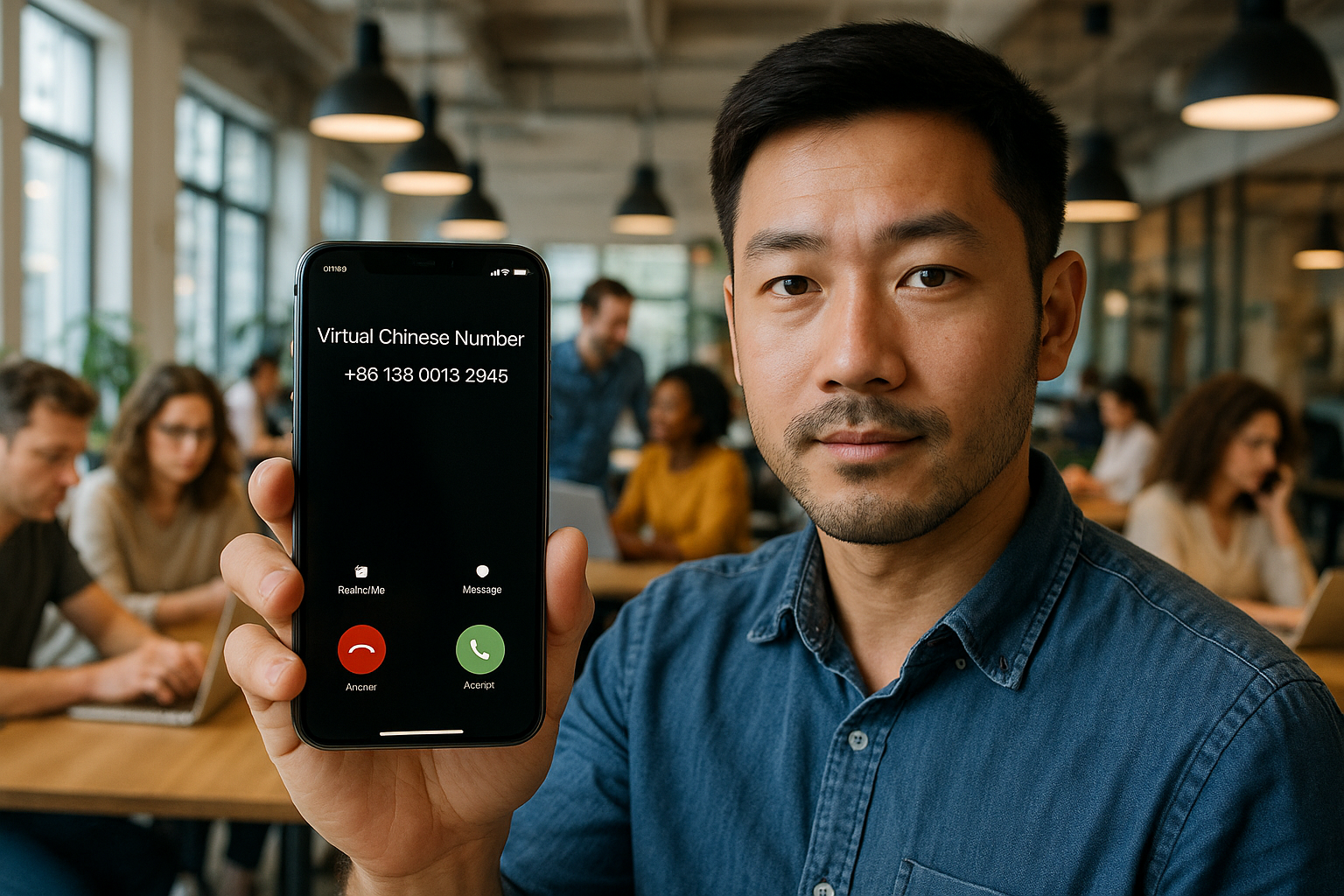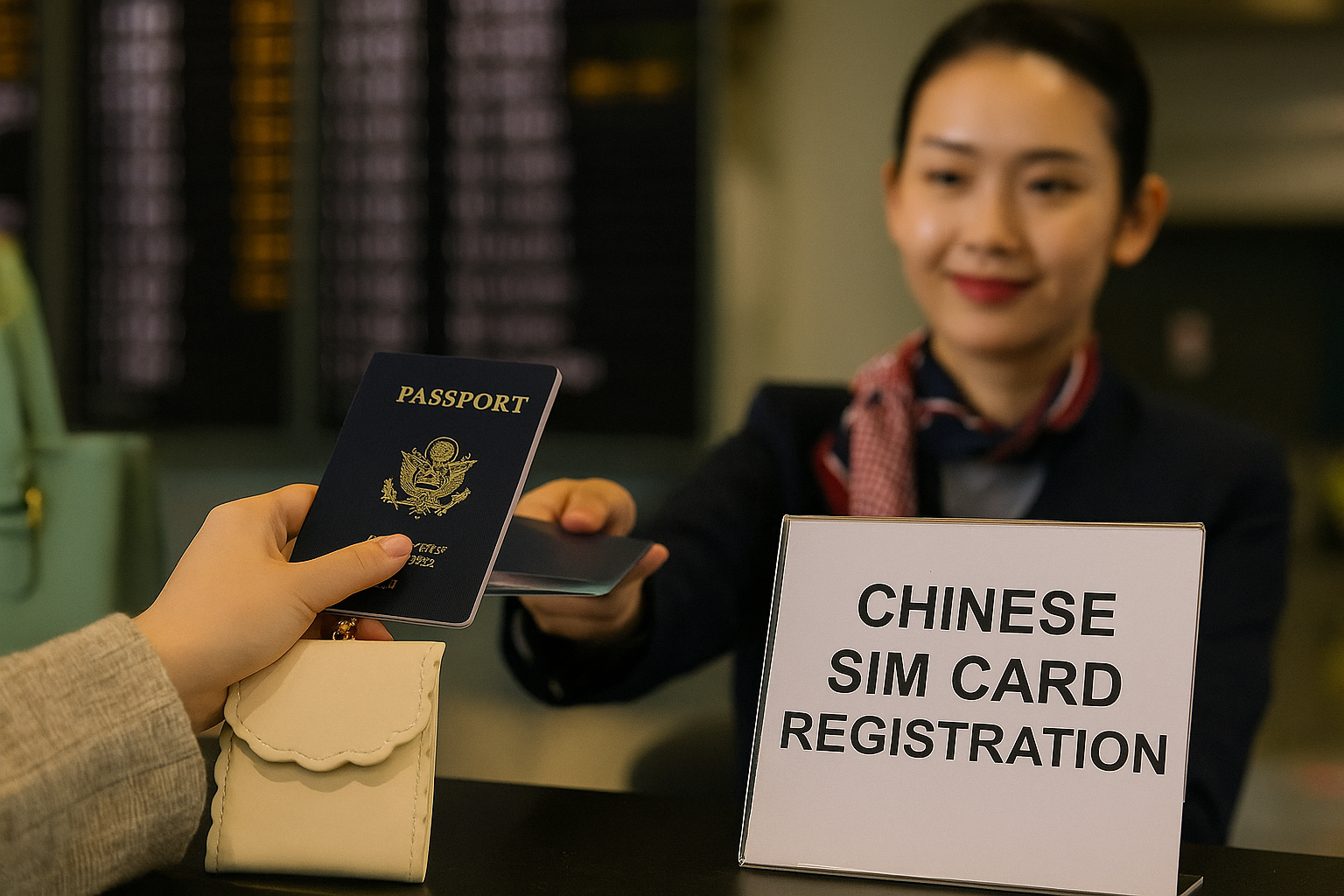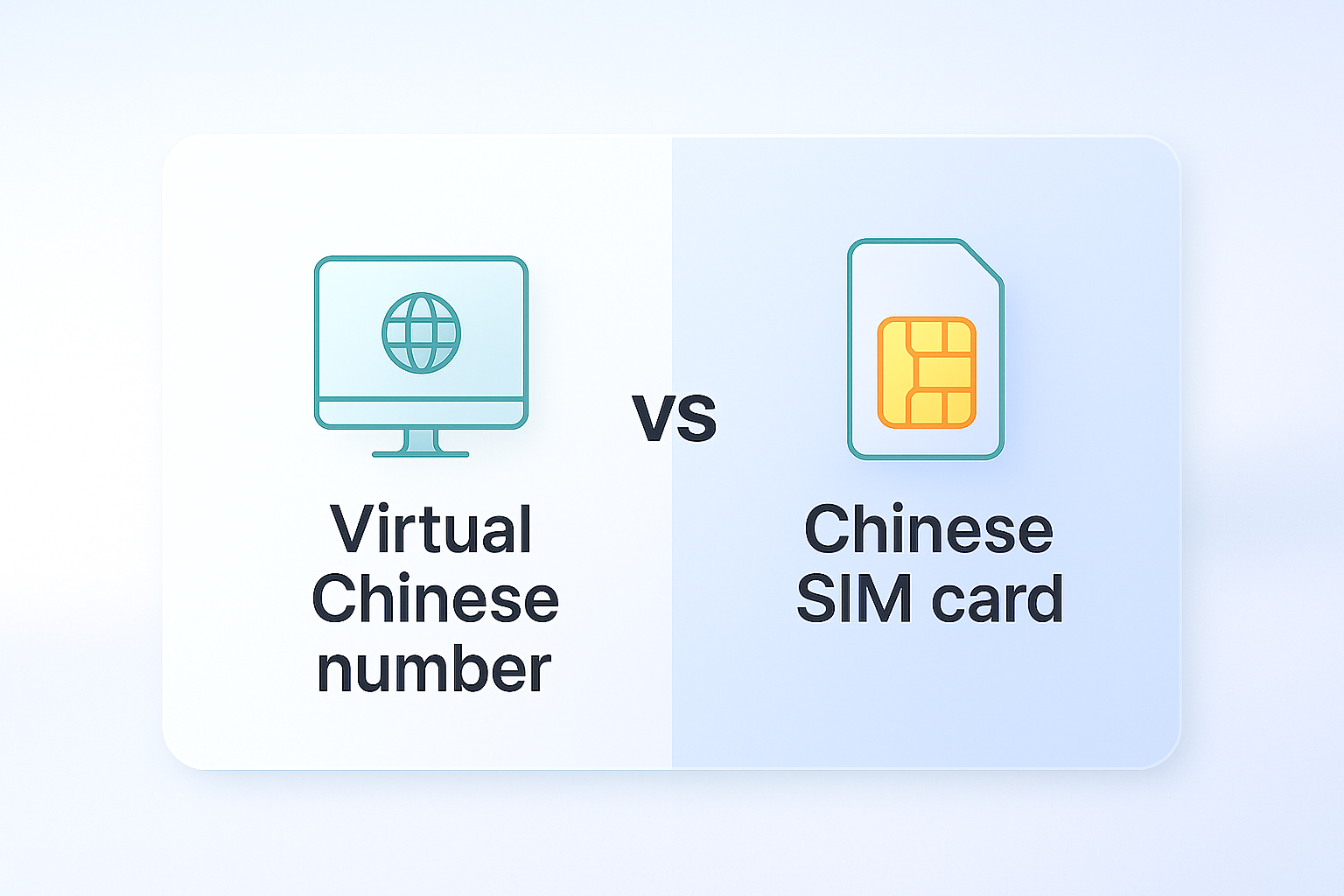Key Takeaways
- If you need virtual chinese phone number for OTPs for apps like WeChat or banking, get a physical +86 SIM in person with your passport. Virtual numbers don’t reliably receive Chinese OTPs.
- If you only need a business line for inbound calls, get a compliant “400” hotline or city DID and forward it to your PBX or SIP. Do KYC, confirm limits, and test reachability on China Mobile, Unicom, and Telecom before you pay.
- To call China, use exit code + 86 + number. Pick a solution based on your goal: travel with data needs → local SIM; remote presence and routing → virtual number. Use VoIP to keep international costs down.
Path A: Get a virtual chinese phone number for business line legally without traveling
This is the path for inbound business calls that ring your PBX, SIP, or IVR.

What you can get:
A China “400” enterprise hotline or a city DID that forwards inbound calls to your PBX or SIP, often with IVR and recording. “400” is reachable nationwide from mobiles and landlines, and is the common business alternative to toll free.
What you generally cannot get remotely:
A +86 mobile that receives all OTPs, because SMS A2P is tightly regulated and requires licensed entities and pre registered templates.
Exact steps to procure a business line:
1. Confirm your eligibility. You or your local partner needs a Chinese business license to sign number provisioning contracts with licensed telecom operators or integrators.
2. Prepare compliance documents. Gather the business license, legal representative ID, company stamp, and a service use description, since telephony is a Value Added Telecom Service that is licensed and supervised by MIIT.
3. Choose number type. Pick “400” for nationwide branding and mobile reach, or pick a city DID if you want a local area code presence and SIP forwarding.
4. Request capabilities in writing. Ask for inbound voice to SIP, IVR, recording, concurrency, and clear routing paths, plus written confirmation that outbound from that number is either restricted or unavailable, which is common for virtual inbound lines.
5. Sign and provision. Sign the service contract, complete KYC verification, point the number to your SIP or PBX, and perform a live inbound call test from three Chinese mobile networks.
Ten minute acceptance test before paying in full:
1. Call the number from China Mobile, China Unicom, and China Telecom lines.
2. Verify caller ID delivery to your PBX, IVR branching, and recording playback.
3. Repeat three calls per carrier during peak hours to check stability. This catches routing blocks and carrier filtering before you scale usage.
Path B: chinese phone number for verification;+86 number for OTPs and app logins
This is the path for WeChat Pay, banking, delivery apps, and most Chinese registrations.

Calling China: In Simple Way from Anywhere
International dialing appears complicated, yet
the pattern never changes: exit code, +86, area or mobile prefix, subscriber number.
Remember that Chinese mobile numbers always start with 1 plus nine digits, while landline area codes vary from two to four digits.
Dialing China from the U.S
From the United States, dial 011, then 86, then the number. From most mobiles you can simply use +86 followed by the rest and press call.
The Correct International Access Code and Country Code
Exit codes differ: 011 in the U.S., 00 in the UK, and 0011 in Australia. The country code 86 never changes, saving you from memorizing multiple variations.
Distinguishing Between Mobile and Landline Dialing
Landlines need an area prefix such as 10 for Beijing or 21 for Shanghai, while mobiles skip that step.
Calling Chinese Mobile Numbers Directly
Simply dial +86 1XXXXXXXXXX and wait; Chinese carriers do not require a leading 0 for mobiles.
Reaching Chinese Landlines: Including Area Codes
Dial the exit code, add 86, then the area code without its initial 0, finishing with the subscriber digits.
Choosing the Right Chinese Phone Number Solution for You
| Factor | Virtual Chinese Number | Physical Chinese SIM |
|---|---|---|
| Setup speed | Minutes online | 10-15 minutes in store |
| Keeps existing device | Yes, no SIM swap | Requires dual SIM or swap |
| Data connectivity | Depends on forwarding | Full local 4G/5G |
| Accepts local SMS apps | Sometimes limited | Always works |
| Best for | Long distance business presence | On ground travel and data |
Factors to Consider: Duration of Stay, Purpose, Budget
Short trips with heavy data demands favor a tourist SIM, while remote ecommerce or customer support lines lean toward Chinese virtual numbers that scale without extra hardware.
Provider Recommendations for Different Needs
- Travelers: China Mobile’s “Holiday Plan” offers unlimited domestic data for seven days at under ¥100.
- Businesses: Look for cloud platforms that promise compliant virtual Chinese numbers and mainland P2P SMS delivery.

Making the Most of Your Chinese Phone Number
Install WeChat, Alipay, Didi, and food delivery apps first, since all require SMS confirmation. Monitor data balance USSD codes or app dashboards daily because streaming or map downloads can consume allowances quicker than expected. iccid of your sim
Understanding Local Calling Rates and Data Usage
Domestic calls usually cost under ¥0.19 per minute, while data is sold in 1 GB blocks when the initial bundle ends. International calls from China remain pricey, so use VoIP whenever Wi Fi is strong.
Managing International Calls and SMS
For outbound calls home, consider dialing apps that route through your virtual Chinese number to avoid surprise roaming surcharges. Incoming SMS is free on most SIMs, but outbound international texts can exceed ¥1.20 each.
Troubleshooting Common Issues When Calling or Using a Chinese Number
- “Number Not in Service” Errors: Confirm you added the correct +86 prefix and removed any leading zeros.
- Poor Call Quality: Move away from concrete basements because Chinese 4G signals struggle underground.
- Roaming Cost Surprises: Disable background data on foreign SIM profiles before inserting a Chinese card.
Frequently Asked Questions
1. Which virtual number provider is best for China?
Select one offering mainland SMS and local call routing with clear compliance documentation.
2. How long does it take to get a Chinese virtual number?
Most platforms provision instantly after KYC, making the process less than ten minutes end to end.
3. Do I need a Chinese ID to get a SIM card?
Foreign passports satisfy real name rules; bring your visa page for multi month packages.
4. What’s the cheapest way to call China from abroad?
Use VoIP over Wi Fi or forward calls through your virtual Chinese number to local recipients.
5. Can I receive SMS on a virtual Chinese number?
Yes, but some banking or government OTP messages only reach physical SIMs for security reasons.
5. Are there any free options for Chinese phone numbers?
Truly free numbers are rare; reputable providers charge small monthly fees to stay compliant.

Get now a Chinese phone number by sign up at superU .


